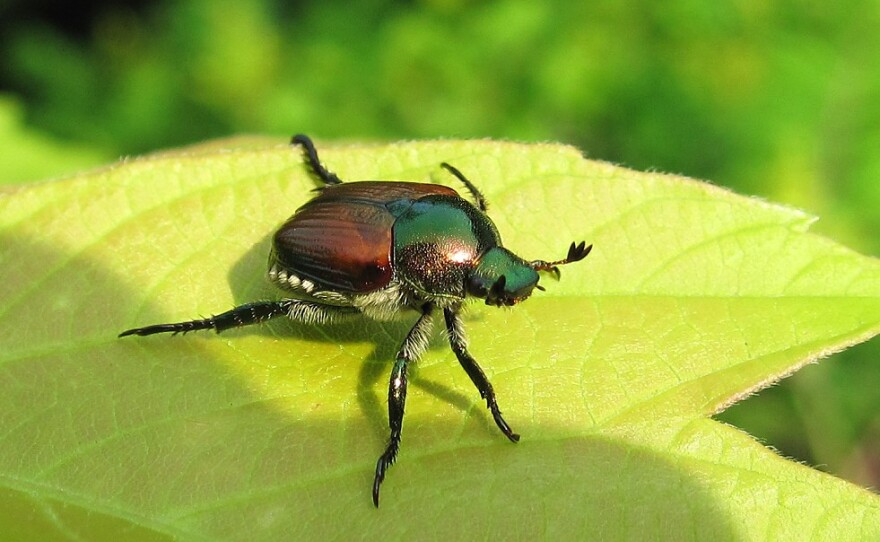Mid-summer brings Japanese beetles to the garden, clustering on their favorite foods: the leaves of raspberry, grape, and garden roses. In the vegetable garden, the lead shoots of pole beans are another tasty target. I know gardeners who find a daily ritual of flicking beetles into a container with water and a drop of liquid soap to be very therapeutic. Beetle demise is quick. These are people who typically release indoor spiders and wasps to the outdoors, but damage to the garden is another matter.
The beetles emit a congregation pheromone that gathers others to form a crowd of leaf munchers. While the group mentality makes them powerfully destructive to plants they gang up on, the crowd makes them easy targets for flicking into the soap and water mixture. Bye bye beetles.
The females mate repeatedly, dropping down each time to lay eggs near grass. That's what the beetle grubs feed on: grass and weed roots. You can blame this invasion on the great American turf lawn; the perfect habitat for the grub stage. They arrived here about 100 years ago, most likely in the soil of imported Japanese irises. In Japan, native birds feed on the beetles, keeping them in check, plus there's not much turf grass habitat for them to thrive.
As for control methods, the colorful Japanese beetle traps that gardeners hang out were designed to monitor their spread in this country, some attracting beetles from 100 yards away. Gardeners in the know joke that the best way to get rid of beetles is to give their neighbors a few traps to hang. The neighbors' gardens then become the go-to destination.
What are Japanese beetles good for? A few of my gardening friends, the ones who wouldn't hurt a fly, toss Japanese beetles to their chickens--and watch the chickens come running.










